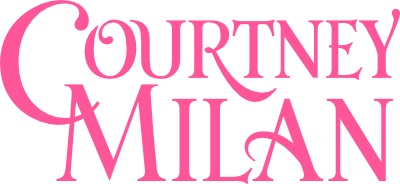On Monday evening, I handed my wonderful editor my Christmas novella. (I’ve seen a preliminary cover but haven’t gotten the go-ahead to share it yet–trust me, as soon as I can show everyone, I will be plastering it everywhere!)
This was the first thing that I’d written completely on contract. I had a lot of worries about this particular novella. It’s written as a prequel to my publishing debut, PROOF BY SEDUCTION, and there were just not a huge number of happily married characters from that book who I could work into a prequel.
In fact, there was only one character who was happily married–and that was my hero’s man of business, William White. Mr. White was an interesting side character in the book. He doesn’t get much time on-screen, but I always imagined him going back to his wife in the evenings and snickering at my hero, saying, “That man has money and power but HOLY MOTHER OF PEARL does he ever need to get laid.” Even though William White is unflinchingly polite, as any servant must be, there is always that undercurrent of amusement in all of his dealings with his employer.
And so when my editor asked me to write a prequel, I began to wonder about William White. Who was this man? How did he get to be so self-assured? Why did the extremely proper and stringent Marquess of Blakely hire a man just into his thirties to help run his massive estates? And what kind of woman would be a good match for such a man?
My heroine just kind of appeared full-fledged, Athena-style. She’s the one who told me that the hero of my novella was not, in fact, Mr. William White. He was William Q. White–and I can’t wait until you find out what the “Q” stands for.
*snicker*
